Relabelled again and sold in Australia through the H.G. Palmer department stores.
I was rather surprised yesterday to find that at the end of July 2007 I had not alone made an inventory of my typewriter collection, such as it was back then, but the inventory was still in existence. At that time, 14½ years ago, not many of my 193 typewriters were what could be called truly vintage. As the collection grew, by almost five times the number of machines I then owned, that situation very much changed. And with an emphasis on much older models, I naturally started to lose interest in those 1950s and ’60s machines which had once so fascinated me.
Near the top of the inventory, for example, were two metallic green Empire Coronas. Goodness knows where they are now. They were no more than relabeled Smith-Corona Skyriters, of course, but back in my earliest days of typewriter history research I was intrigued by how an American machine could be sold as a British-made Empire Corona. (Bearing in mind my 2007 collection also included such little mysteries as a Czech-made Norwood and Japanese-made Pinnocks.) The Empire Corona had me scratching my head about things that had been going on in the typewriter world at the time I first started using a typewriter.
Rob Bowker's Empire Corona
In September 2007 I
contacted Will Davis with some information I’d gathered for Will’s Portable
Typewriter Reference Site. Will was almost as puzzled as I was by these Empire
Coronas. “Here are a couple of interesting typewriters,” he wrote in a caption beside
an Empire Corona with an Empire Aristocrat. “Both were built in West Bromwich, England, in
the same factory but at different times. Very rarely you will see a machine of
the Hermes pattern with Corona or SCM labeling, made during a short period of ‘running
down the stocks’.”
Assembling Skyriters and turning them into Empires
All would become clear to me in the next few years. But, reminded yesterday of my Empire Coronas, I was still interested in revisiting the events which led to Smith-Corona-Marchant taking over the old Salter typewriter plant in West Bromwich outside Birmingham in England.
SCM’s cash offer for all outstanding 33,000 common shares and 39,267 preferred shares in British Typewriters Ltd of West Bromwich was announced on July 27, 1958, by SCM president Elwyn Smith, with a deadline for acceptance set at September 1. By August 26 the deal was done. (Elwyn Lawrence ‘Tump’ Smith, 1894-1979, was a son of Wilbert Lewis Smith and nephew of Lyman Cornelius Smith.)
British Typewriters had gained the rights from E. Paillard & Cie in Yverdon, Switzerland, to make Hermes Featherweights as Empire portable typewriters, soon after the Featherweight was launched in 1935. Smith said SCM planned to enlarge the West Bromwich factory to make Corona Skyriter portables as well as the Empire. As it turned out, however, in its first year in Britain the American company merely assembled and relabeled the Skyriter. Still, rocky times lay ahead.
On September 17, 1959, British Typewriters and Smith-Corona dropped the prices of some models. At the end of April 1960, SCM said the price squeeze in the US typewriter market, the subject of tariff hearings in Washington DC, had forced the American company to move production of all of its portables from Groton, Cortland and South Cortland to West Bromwich.
The Salter factory was levelled in June 2013.
A brief filed before the Tariff Commission said the move followed the closing of SCM’s main plant in Syracuse, with production first moved to Groton and Cortland then Britain. This, explained SCM’s Syracuse personnel director Howard Pellenz, referred only to the Skyriter, with standard size machines still to be made in the US. Pellenz called the Skyriter a “loss leader” in the industry. A loss leader is a pricing strategy in which a product is sold at a price below its market cost to stimulate other sales of more profitable goods. With this sales promotion-marketing strategy, a “leader” is any popular article sold at a normal price. Continued production of the Skyriter in the US “did not make sense in view of high domestic production costs”.
British Typewriters had taken over the old Salter plant in West Bromwich in 1936, soon after the company’s founder, former Imperial sales manager and Royal Flying Corps pilot Bill Mawle (above, 1897-1971), had acquired the rights to make a variant of the Hermes Featherweight portable. The plant was hit by German bombers in World War II and a rebuild was completed by 1954.
As part of SCM’s takeover offer, Mawle and his works manager J.C. Holdship, both of whom had been with British Typewriters since 1936, were retained in their positions. Mawle stepped down from the managing directorship in January 1962 and was succeeded by Holdship. At the end of 1974 SCM expanded the West Bromwich factory as well as opening a plant in Singapore. The West Bromwich factory was closed on February 5, 1981, with the lose of 230 jobs. Cortland was closed in 1993 and production moved to Mexico. SCM went bust in 1995.




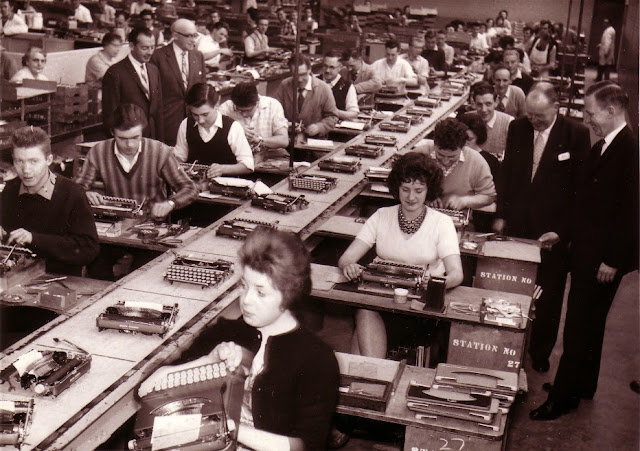

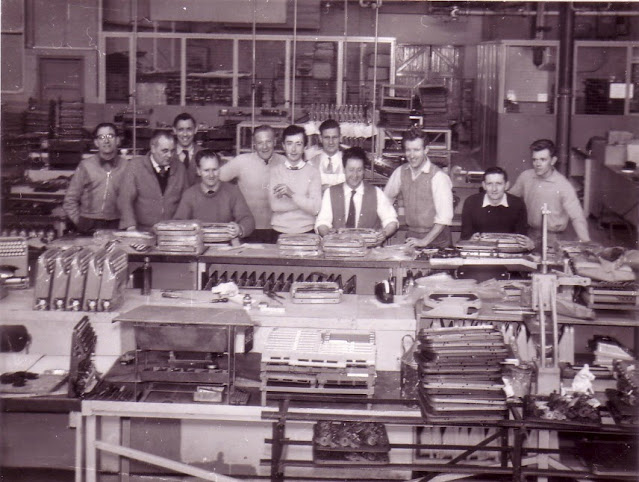

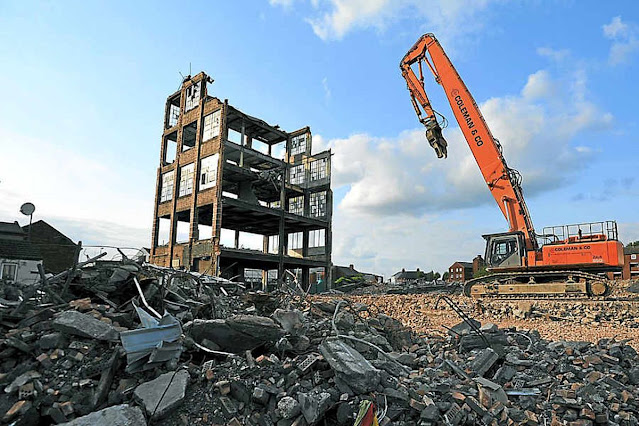
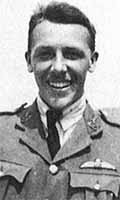
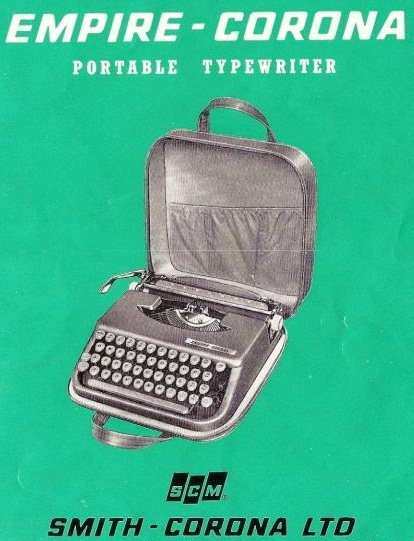
3 comments:
Thank you for this very detailed and well-documented history of this part of SCM/Empire history. (:
Nice report, Robert. You've got me wanting to search out an Empire Corona.
This really helped as I've just rescued an Empire Corona with SCM. I couldn't work out when it was actually made. It still has corrective and black ribbon inside. I didn't know there was such a thing. The poor thing was in the bag but It was soaked so I rescued the typewriter took it out the base plate and found the serial number but it didn't make sense as I couldn't find one that looked similar. I've searched all day and finally found you and it's exactly the same as yours. I can't believe it was in a box outside waiting for the tip as the keys have hardly been used. Ty so much for your information above. Maria
Post a Comment